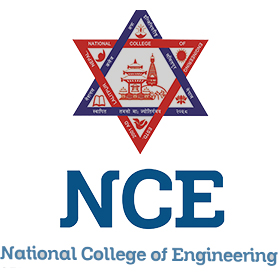Overview
Bachelor of Civil Engineering (BE Civil) at Everest Engineering College (EEC), Sanepa, Lalitpur (affiliated with Pokhara University)
Civil engineering is one of the oldest and most rapidly developing engineering disciplines worldwide. It has been a popular program since ancient times, and continues to attract students in the sophisticated twenty-first century. At EEC, we offer a four-year undergraduate program leading to a Bachelor of Civil Engineering degree, which is divided into eight semesters. This highly demanding academic program covers various professional fields, including transportation and highway design, earthquake and geotechnical engineering, water resource and hydropower engineering that leads to Nepal's most successful hydropower production industries, and structural designs of high-rise buildings, steel and RCC structures such as shopping malls, bridges, and more. Civil engineering graduates are in high demand in this post-earthquake and infrastructure construction time of Nepal.
The curricula at EEC are up-to-date and meet the current needs of the industry. We prepare students with a strong theoretical background while incorporating real-life technical skills using modern teaching and learning methods and strategies. The demand for civil engineers is increasing globally, as the design of civil engineering structures evolves with time and new, lightweight, and robust construction materials are being fabricated. The demand for civil engineering graduates is also high because old design buildings with heavy construction materials are no longer considered safe to live in and are being continuously replaced.
Civil engineering graduates have a wide range of career prospects in both the public and private sectors, particularly in local authorities, designing, and constructing infrastructure. There is enormous demand for civil engineers in Nepal, and this demand is expected to grow as the country achieves political and economic stability. Civil engineers can work as planners, designers, constructors, and operators of physical works and facilities required in civil societies. They can also work in different sectors such as roads, buildings, hydropower and irrigation projects, and water supply projects.
EEC provides various scholarships to deserving students, including full government scholarships, full tuition fee scholarships for the university topper (SGPA 4.0), 50% tuition fee scholarships for class toppers, and admission scholarships for meritorious students based on their Higher Secondary Level (10+2) examinations or equivalent and entrance exams followed by an interview.
To be eligible for admission to the Bachelor of Civil Engineering program at EEC, students must have passed their Higher Secondary Level (10+2) with Science (Physical or Bio-group) or Diploma in Engineering or equivalent from a recognized institution, securing at least second division marks with mathematics as one of the subjects.
Contact Everest Engineering College (EEC) administrative office for detailed information on the Bachelor of Civil Engineering (BE Civil) course, including fees, scholarships, facilities, counseling, eligibility criteria, etc.

















